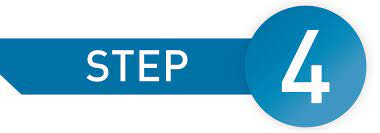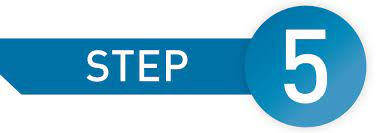《央视新闻》提高做事效率的几个好方法
Note: This audio is about four minutes long, so I have cut it into sizeable chops that are easier for us to feast on for the week. 🤗
Part 2: 👇🏾
Listen to the complete audio content to get the main idea.
Normal Speed
Listen again looking through the transcript.
Transcript:
我们需要知道自己现阶段的核心目标是什么,先花时间找到那件实现核心目标最重要的事,聚焦自己的当下任务,然后专心攻克。如果目标失焦,精力分散,就意味着,我们会在这种盲目的“努力”中,失去真正重要的东西。对待事情时,有劲儿使错了方向,事倍功半;而找准重点和问题核心再发力,则能事半功倍。
厘清状况再动手
除了定位核心问题,做事情的方法同样重要。人的潜力其实是无限的,但人的精力却是有限的。与其上来就开足马力,不如先厘清事件的状态,把握核心后再精准出手。就像跑一场马拉松,有经验的跑者会先熟悉场地,合理分配体力和补给,根据自己的体能特点制定战术。
Mimic and/or Shadow with the Audio. Extend your “Input” into “Output”.
Pay Special Attention to:
Your pronunciation
The pauses
The tone
The stress
The emotions
Review the terms and expressions and the usage examples for better understanding. You can also read the English translation for reference.
Terms and Expressions:
攻克 (gōngkè) means "to overcome" or "to conquer", especially in the context of something difficult like a problem, obstacle, disease, or enemy. It's often used in formal or serious situations, such as scientific research, military victories, or major challenges.
Here are a few examples:
他花了两年才攻克这门语言。
Tā huāle liǎng nián cái gōngkè zhè mén yǔyán.
It took him two years to master the language.
要想攻克高数,必须每天坚持练习。
Yào xiǎng gōngkè gāoshù, bìxū měitiān jiānchí liànxí.
To get through advanced math, you have to practice every day.
事倍功半 (shì bèi gōng bàn)
Literal meaning: "Twice the effort, half the result."
Actual meaning: It describes a situation where someone puts in a lot of effort, but because they’re using the wrong method or approach, the results are poor. The work becomes inefficient and the outcome doesn’t match the amount of effort invested.Here are a few examples:
如果你不讲究方法,再怎么努力也只是事倍功半。
Rúguǒ nǐ bù jiǎngjiù fāngfǎ, zài zěnme nǔlì yě zhǐshì shì bèi gōng bàn.
If you don’t use the right approach, no matter how hard you work, it’ll just be wasted effort.
学习语言不能光靠死记硬背,那样只会事倍功半。
Xuéxí yǔyán bùnéng guāng kào sǐjì yìngbèi, nàyàng zhǐ huì shì bèi gōng bàn.
You can’t rely on rote memorization to learn a language—it’s just not effective.
事半功倍 (shì bàn gōng bèi)
Literal meaning: "Half the effort, double the result."
This idiom is used to describe a situation where the effort put in is relatively low, but the outcome or result is very rewarding or efficient. It often implies working smarter, not harder.Here are a few examples:
如果方法对了,学习就能事半功倍。
Rúguǒ fāngfǎ duì le, xuéxí jiù néng shì bàn gōng bèi.
If you use the right method, learning becomes much more effective.
与其死记硬背,不如理解内容,这样才能事半功倍。
Yǔqí sǐjì yìngbèi, bùrú lǐjiě nèiróng, zhèyàng cái néng shì bàn gōng bèi.
Instead of rote memorization, it's better to understand the content—that way, you learn more with less effort.
Transcript with English Translation (Machine translated with some editing)
Transcript:
我们需要知道自己现阶段的核心目标是什么,先花时间找到那件实现核心目标最重要的事,聚焦自己的当下任务,然后专心攻克。如果目标失焦,精力分散,就意味着,我们会在这种盲目的“努力”中,失去真正重要的东西。对待事情时,有劲儿使错了方向,事倍功半;而找准重点和问题核心再发力,则能事半功倍。
厘清状况再动手
除了定位核心问题,做事情的方法同样重要。人的潜力其实是无限的,但人的精力却是有限的。与其上来就开足马力,不如先厘清事件的状态,把握核心后再精准出手。就像跑一场马拉松,有经验的跑者会先熟悉场地,合理分配体力和补给,根据自己的体能特点制定战术。
We need to be clear about our core goal at this stage of life. Take the time to identify the single most important task that will help you achieve that goal. Focus on it and give it your full attention. When our goals become blurry and our energy is scattered, we risk losing sight of what truly matters—despite working hard. Effort in the wrong direction leads to poor results; but when we focus on the right priorities and tackle the real issue, we can accomplish more with less effort.
Get clarity before taking action
It’s not just about identifying the key issue—how we approach it matters too. Our potential may be limitless, but our energy is not. Instead of diving in full speed from the start, take a moment to understand the situation. Once you’re clear on the core issue, you can act with precision. It’s like running a marathon: experienced runners first familiarize themselves with the route, plan their energy and hydration breaks wisely, and develop strategies based on their own strengths.
You can flex your muscles by doing a Paraphrasing practice to round things up.
Still not sure how to do this practice? You can watch how to below:
How to use!
You can also see how here! Enjoy~
Join us on this journey, as we take our Chinese to the next level in 2025!
See you tomorrow!





